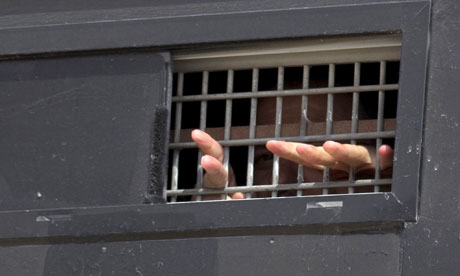
The arrests of 26 suspects from a Cairo public bath house on charges of “homosexuality” is a severe individual violation, the Egyptian Initiative for Personal Rights (EIPR) said Saturday.
The group’s statement described the arrests, which took place on 7 December, as an “organised campaign by the vice police against homosexuals, in cooperation with some media outlets”.
The initiative called upon the authorities that the defendants receive a fair trial, adding that the arrests were accompanied by harsh violations to the Egyptian constitution.
“During the arrests, the police permitted a media presence to record footage and use it to as exclusive news material,” the initiative said. “This is against the principle of the privacy rights and a violation to article 75 of the Egyptian Criminal Law.”
EIPR added that the police did not allow the defendants to call their lawyers or their relatives.
On 7 December, a force from the Egyptian anti-vice police raided the bath house and referred the defendants to the Azbakeya police station, on charges of organising same-sex “orgies”
The 26 defendants will be referred to court on Sunday, the Azbakeya prosecution unit told Daily News Egypt Wednesday.
Four of the defendants, including the owner of the bathhouse, are charged with “running a place that organises paid sexual orgies”, while the other 21 are facing charges of debauchery.
The latter group also underwent intrusive anal examinations by the forensic department to determine whether they were “habitual” homosexuals.
The forensic department announced that three suspects were found to be “victims of sexual assault”, adding that the tests could not reveal whether the other 18 suspects participated in homosexual relations or not.
The case was set to be reported and featured by an investigative TV show on private satellite station Al-Qahera Wal-Nas. The show’s cast featured promos titled “revealing the reasons behind the spread of HIV in Egypt and the group sex business”.
The programme received harsh criticism by social media users and LGBT activists. The programme host, investigative journalist Mona Iraqi, posted watermarked photos of the alleged semi-naked defendants while being arrested.
No specific law outlaws homosexuality in Egypt. However, in most cases the prosecution uses article 9 of Law 10/1961 criminalising “debauchery”, to convict people accused of engaging in homosexuality.
The law is most frequently used to accuse defendants of involvement in prostitution.



